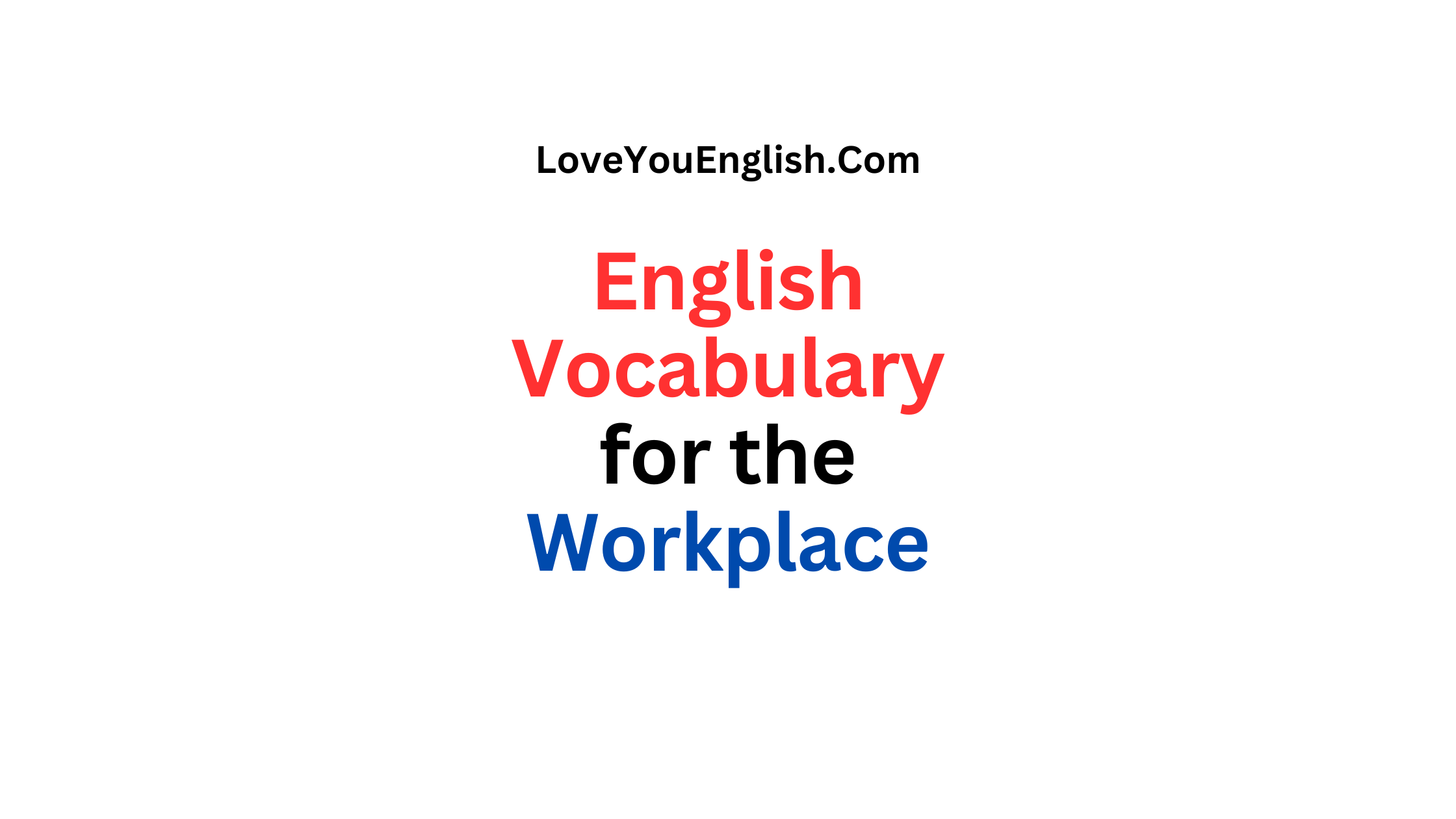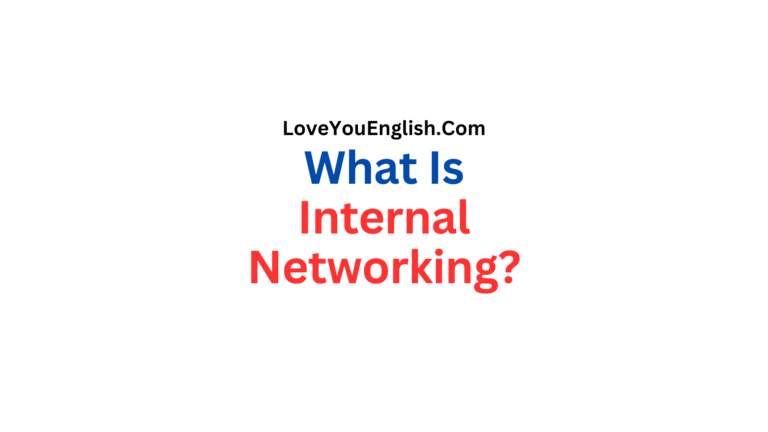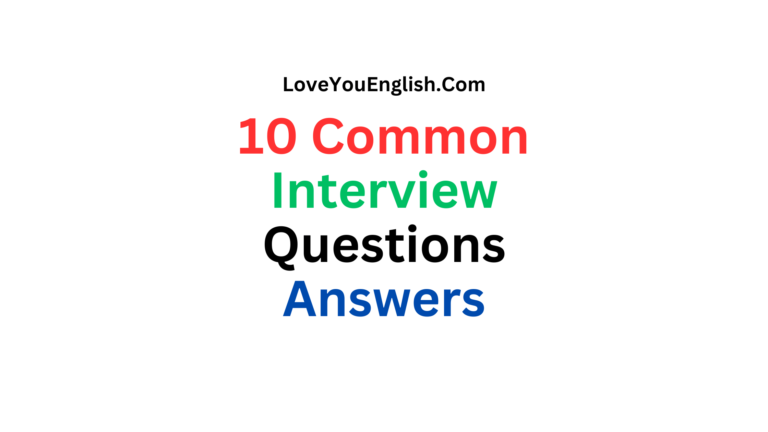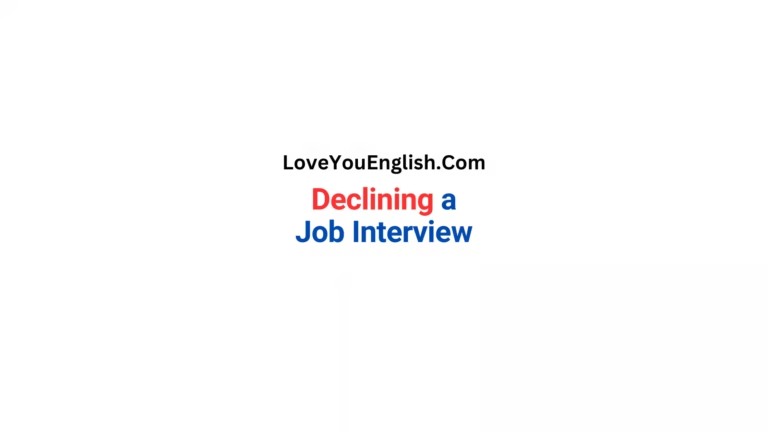Essential Words for Workplace Communication
Good communication is super important for a successful workplace.
No matter, if you’re in a big corporate office, a creative agency, or a small startup, using the right words, can really change how you connect with your coworkers, clients, and bosses.
I will talk about key words that help you communicate clearly, politely, and professionally at work.
1. Collaboration
Collaboration refers to working together with others to achieve a common goal. In the workplace, collaboration is a key aspect of teamwork, and knowing how to talk about it can improve your professional relationships.
2. Deadline
A deadline is the latest time or date by which something must be completed. Understanding and discussing deadlines is important for managing time effectively and ensuring that tasks are finished on schedule.
3. Feedback
Feedback is information or advice about how someone is doing in an effort to improve. It can be positive or constructive and is essential for growth in the workplace.
- Example: “Can I give you some feedback on your presentation?”
4. Priority
Priority refers to something that is more important or needs to be done before other things. Being able to communicate priorities helps teams focus on what matters most.
- Example: “This client request should be our priority today.”
5. Professionalism
Professionalism means maintaining a high standard of behavior and appearance at work. Using words that demonstrate respect, honesty, and integrity are part of being professional.
6. Responsibility
Responsibility refers to the tasks and duties someone is expected to perform. Knowing how to discuss responsibilities helps ensure everyone understands their role in a project.
7. Efficiency
Efficiency refers to completing tasks quickly and with minimal waste of time or resources. In the workplace, being efficient is highly valued as it helps improve productivity.
8. Teamwork
Teamwork involves working cooperatively with others to achieve shared goals. Good teamwork is essential for a smooth working environment and better results.
9. Presentation
A presentation is a way of showing and explaining information to others, usually in a meeting or formal setting. Being able to give a good presentation is an important workplace skill.
- Example: “I have a presentation scheduled for tomorrow afternoon.”
10. Update
An update is new information about a task, project, or situation. Regular updates ensure that everyone is on the same page.
11. Negotiation
Negotiation is the process of discussing something in order to reach an agreement. Whether it’s about salaries, deadlines, or project scopes, knowing how to negotiate is crucial in the workplace.
12. Conflict
Conflict refers to a disagreement or clash between people. While conflicts are natural, knowing how to handle them professionally is key to maintaining a healthy work environment.
- Example: “We need to resolve this conflict before it affects the team.”
13. Deadline-driven
Being deadline-driven means focusing on completing tasks by the set deadline. This term is commonly used to describe someone who works efficiently under time constraints.
14. Proposal
A proposal is a formal suggestion or plan for consideration. In many workplaces, making proposals is a way to pitch ideas or suggest improvements.
15. Task
A task is a specific job or duty to be completed. It can range from small, routine jobs to larger projects.
- Example: “I have a few tasks to finish before the end of the day.”
16. Deliverable
A deliverable is something that must be provided or completed as part of a project. It is often used in the context of project management and outlines expected outcomes.
17. Team Leader
A team leader is the person in charge of guiding and coordinating a team. They are responsible for making sure tasks are done and the team stays on track.
- Example: “The team leader assigned me to handle client communications.”
18. Client
A client is a person or company that receives a service from another. Clients are a central part of many businesses, and communicating well with them is crucial.
- Example: “We have a meeting with the client tomorrow afternoon.”
19. Strategy
A strategy is a plan of action designed to achieve a particular goal. In the workplace, strategies are often used to improve business outcomes.
20. Collaboration Tools
Collaboration tools are digital tools that help teams communicate and work together, especially when working remotely. These tools help manage projects, share documents, and communicate easily.
21. Agenda
An agenda is a list of items to be discussed in a meeting. It helps participants know what to expect and stay on track during the conversation.
- Example: “Please send me the agenda for tomorrow’s meeting.”
22. Report
A report is a detailed document that provides information on a topic or project. Writing clear reports is essential for sharing progress, results, and recommendations.
23. Performance
Performance refers to how well someone does their job or how well a team or company is doing. Talking about performance can involve discussing achievements, areas of improvement, and overall results.
24. Task Management
Task management refers to the process of organizing, prioritizing, and completing tasks. Effective task management helps ensure that deadlines are met.
- Example: “Using task management software helps us stay organized and on top of our work.”
25. Innovation
Innovation is the act of introducing something new or improving existing processes. It’s highly valued in many workplaces, especially in fields like technology and marketing.
- Example: “Our company encourages innovation to stay ahead of the competition.”
26. Decision-making
Decision-making refers to the process of making choices or judgments after considering different options. Good decision-making is crucial in the workplace for progress and growth.
- Example: “Effective decision-making is vital when managing a team.”
27. Productivity
Productivity refers to the efficiency with which tasks are completed. High productivity often leads to better results and overall business success.
- Example: “Implementing time management strategies helped improve our team’s productivity.”
28. Communication Channels
Communication channels are the methods through which information is shared, such as email, meetings, or instant messaging. Using the right communication channel for each situation is important.
- Example: “We communicate through different channels, depending on the urgency of the message.”
29. Workload
Workload refers to the amount of work assigned to someone or the amount of work in a particular period. Managing workload is important to prevent burnout.
- Example: “My workload is heavy this week, but I’ll manage it.”
30. Flexible
Being flexible means being adaptable to changes and able to adjust your work schedule or methods when necessary.
- Example: “The company offers flexible working hours to accommodate employees’ needs.”
Conclusion
Choosing the right words at your job is super important for good communication.
Whether you’re talking about your tasks, working with teammates, or handling a project, using the right language makes a big difference.
When you learn and use these key words, you can share your ideas more clearly, stay professional, and have better interactions with your coworkers.
Keep practicing these words, and you’ll see how much better your work relationships and productivity can become.
More topics to read:
- Body Language Tips for Your Next Job Interview
- Interview Strategies for Introverts
- Career Break Guide: Definition, Reasons and Tips
- A Comprehensive Guide to Career Aspirations
- Mastering Interview Vocabulary Like A Pro







